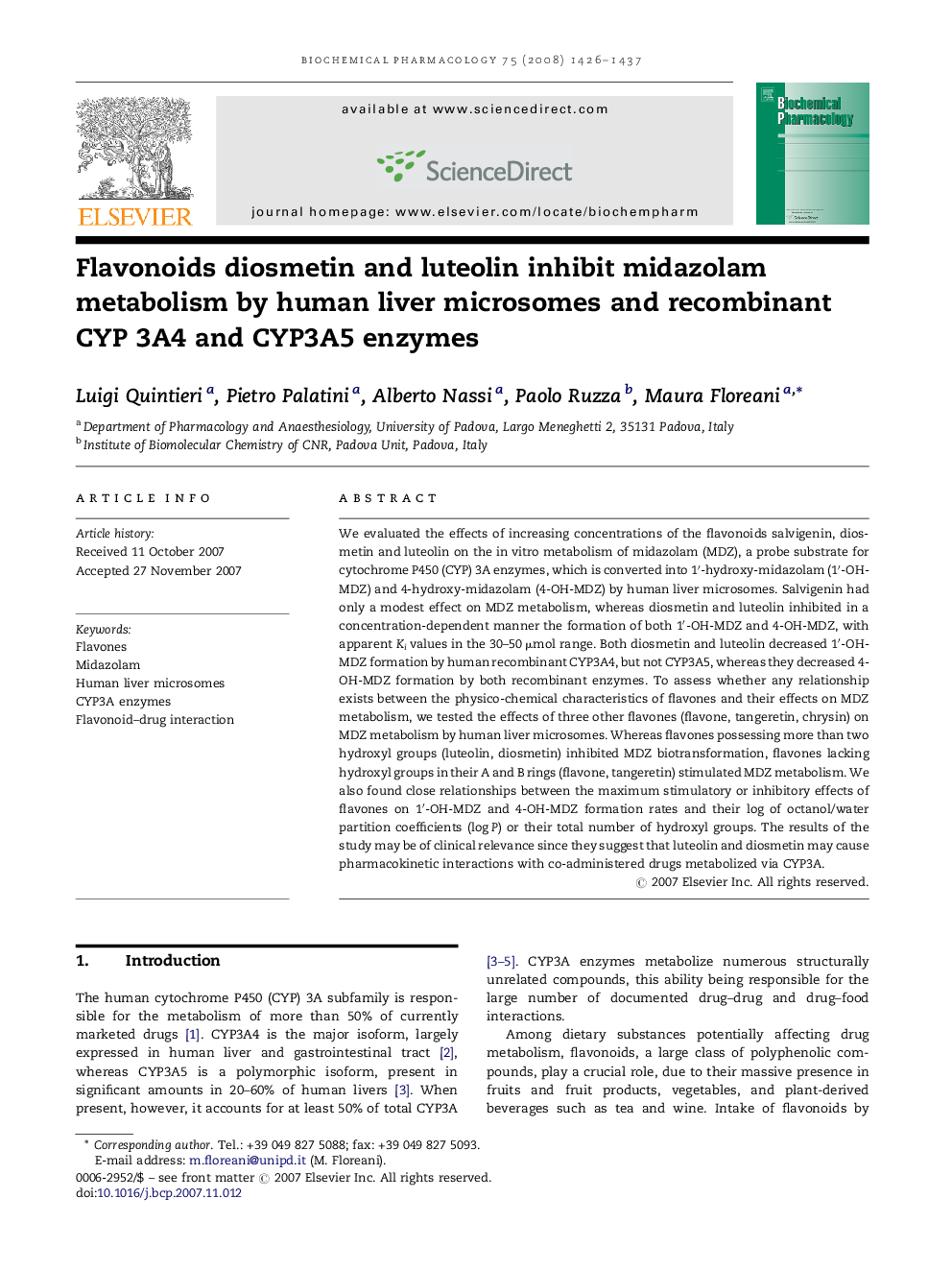| کد مقاله | کد نشریه | سال انتشار | مقاله انگلیسی | نسخه تمام متن |
|---|---|---|---|---|
| 2514520 | 1118470 | 2008 | 12 صفحه PDF | دانلود رایگان |

We evaluated the effects of increasing concentrations of the flavonoids salvigenin, diosmetin and luteolin on the in vitro metabolism of midazolam (MDZ), a probe substrate for cytochrome P450 (CYP) 3A enzymes, which is converted into 1′-hydroxy-midazolam (1′-OH-MDZ) and 4-hydroxy-midazolam (4-OH-MDZ) by human liver microsomes. Salvigenin had only a modest effect on MDZ metabolism, whereas diosmetin and luteolin inhibited in a concentration-dependent manner the formation of both 1′-OH-MDZ and 4-OH-MDZ, with apparent Ki values in the 30–50 μmol range. Both diosmetin and luteolin decreased 1′-OH-MDZ formation by human recombinant CYP3A4, but not CYP3A5, whereas they decreased 4-OH-MDZ formation by both recombinant enzymes. To assess whether any relationship exists between the physico-chemical characteristics of flavones and their effects on MDZ metabolism, we tested the effects of three other flavones (flavone, tangeretin, chrysin) on MDZ metabolism by human liver microsomes. Whereas flavones possessing more than two hydroxyl groups (luteolin, diosmetin) inhibited MDZ biotransformation, flavones lacking hydroxyl groups in their A and B rings (flavone, tangeretin) stimulated MDZ metabolism. We also found close relationships between the maximum stimulatory or inhibitory effects of flavones on 1′-OH-MDZ and 4-OH-MDZ formation rates and their log of octanol/water partition coefficients (log P) or their total number of hydroxyl groups. The results of the study may be of clinical relevance since they suggest that luteolin and diosmetin may cause pharmacokinetic interactions with co-administered drugs metabolized via CYP3A.
Journal: Biochemical Pharmacology - Volume 75, Issue 6, 15 March 2008, Pages 1426–1437